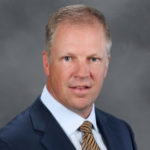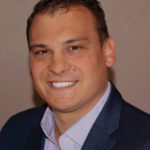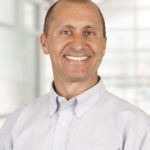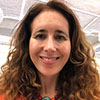By Margery Weinstein
Editor-in-Chief, Review of Optometric Business

June 17, 2020
The COVID-19 crisis significantly impacted optometry practices, requiring most ODs to stop providing routine eyecare for at least two months. Now that we’re in the reopening and recovery phase, ROB reached out to several of the major private equity-backed companies to gauge the impact of the crisis on their operations–and potential to purchase your practice.

James Wachter, OD, chief professional officer of EyeCare Partners..
EyeCare Partners: “A Temporary Setback”
“This is a tough time, but we are looking at this as a temporary setback,” says James Wachter, OD, chief professional officer of EyeCare Partners. “Our primary company value of patient care is more important today than it ever has been, and ECP remains optimistic about our 2020 projections for practice acquisition. We are supporting our provider partners as we ramp back up, with patient and staff health and safety a primary focus.”
The 2020 forecast for the number of practices EyeCare Partners had planned to acquire has not changed, says Dr. Wachter: “We have practice acquisition projections, but it has become somewhat of a moving target.”
The company’s ideal practice acquisition has not changed, Dr. Wachter emphasizes: “We are right where we left off prior to the crisis, we are looking to partner with full-scope medical model practices throughout the country. We are prepared to offer our immediate support today and know we are nimble enough to respond quickly and assist in navigating whatever the future may hold for our current and future practice partners.”

Billy Murray, vice-president, Practice Transitions, MyEyeDr.
MyEyeDr.: “Cautious and Selective for the Right Opportunities”
“We are now moving forward again, but we remain cautious and selective for the right opportunities,” says Billy Murray, vice-president, Practice Transitions, MyEyeDr. “Our business has spent an enormous amount of energy and money on COVID-19 specific safety protocols, securing protective equipment for doctors, staff, and patients, and learning to operate in the new social distancing environment. We are seeing solid patient demand today, however, we also remain prepared for changes in that demand should a ‘second wave’ of the pandemic occur”
Murray says the target number of practices to be acquired this year has been reduced. The focus has been more on improving patient care and processes in the crisis recovery period than on aggressive growth. “For the year, the number of practices we acquire will be less than originally planned–strictly because we decided to pause closing acquisitions for several months,” he says. “During this period, we have been focused on improving our processes to deliver an even better experience to the new offices with which we partner. We are committed to adding the right partners to a strong and sustainable foundation of practices, and many internal efforts are focused on evolving the patient experience to meet the new operational landscape of the industry.”
Other Articles to Explore
He says that letters of intent will be honored: “We intend to proceed with the practices that we signed letters of intent with before the pandemic. The timeline to closing has been delayed, but our ultimate enthusiasm for those offices and teams has not wavered. We are honoring the pre-pandemic purchase price, but have altered the payout structures a bit to account for what could be a longer recovery or COVID-19 relapse.”
Murray stresses the importance of finding practices with cultures that align well with MyEyeDr. That alignment will be necessary as the company helps its practices rebuild patient services and profitability. “We are putting particular emphasis on qualitative traits as we review them in an effort to understand exactly what type of long-term partner the owner and business will be during and after the remainder of the pandemic. The crisis has placed an even higher emphasis on the culture of the practices and making the right fit for both teams.”

Nick Williams, chief executive officer, Keplr Vision.
Keplr Vision: “Rehabilitating Existing Clinical Revenues”
“COVID-19 has caused significant distress in the capital markets, temporarily preventing companies from accessing loan capital to acquire practices,” says Nick Williams, chief executive officer, Keplr Vision. “We have been primarily focusing on rehabilitating existing clinical revenues. Our first priority was to focus on our existing practice group and protect the investments of our partner ODs. I am proud to say that we have firmly turned the corner on getting revenues back up to nearing pre-COVID levels, and we are now preparing to swiftly move back into an acquisition footing.”
Williams says he anticipates that Keplr Vision will resume its acquisition of practices in June and will quicken the pace in August. “We are seeing strong revenue growth in our practices, and this is making us more confident in restarting acquisitions,” he says.
The crisis represents a pause, rather than the shelving of pending sales, Williams explains. He says the company intends to close all of the deals for which letters of intent were already issued: “This pause really just moves our plans back a few months more than changes them.”
That said, Williams also points out that the letters of intent may need to be updated. “Most letters of intent now need to be refreshed due to the delay caused by the outbreak. Some deals will proceed on more or less the same terms, but many will likely need to have some form of re-evaluation to reflect a changed world. We look for ways to provide sellers with a path to full value, and that can take many forms,” he says.
The company will look closely at practices that have experienced performance declines, keeping in mind the impact of this unprecedented crisis. “The lenders will ultimately have a big say in how we consider performance declines, but from our perspective, we are more interested in how a practice addressed the outbreak and how that practice recovered from it in terms of what we are evaluating.”

Steve Baker, president of VSP Ventures.
VSP Ventures: “Cautiously Optimistic”
“While it’s difficult to have a clear picture of what the remainder of the year will look like (i.e. will there be a second wave?), we are cautiously optimistic,” says Steve Baker, president of VSP Ventures. “Despite the pandemic, the mission of VSP Ventures remains: We provide a unique alternative to selling a practice that is care-focused and allows doctors to continue seeing patients while freeing them from the day-to-day management of the business.”
Baker says that the crisis has not changed its standards for practices it seeks to acquire: “We continue to be focused on great practices that provide a quality patient experience and have robust opportunities for doctors.”
VSP Ventures’ focus now, says Baker, is re-engaging with the doctors with practices that are potential additions to its corporate family: “We will re-engage with each one to resume the conversations and understand where they are at. It’s not unrealistic to think they may have a different perspective or desire having gone through the COVID-19 shutdown. For our purposes, it’s important to listen to their needs and desires, and seek to find the intersection points of our mission and goals to ensure a long-lasting and durable partnership.”
 Margery Weinstein is editor-in-chief of Review of Optometric Business. To contact her: mweinstein@jobson.com
Margery Weinstein is editor-in-chief of Review of Optometric Business. To contact her: mweinstein@jobson.com

























